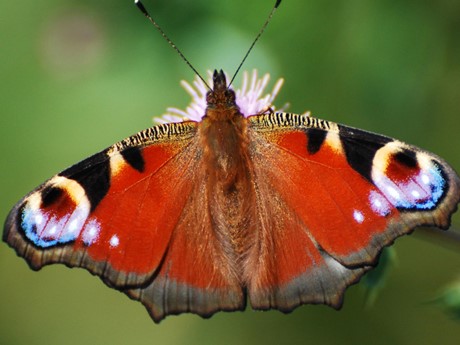Engaging recorders through creative design: Researcher guest blog
Fritha West and Keili Koppel, 10/03/2023
From leaf tinting to early butterflies, our Nature’s Calendar recorders have been out spotting the signs of the shifting seasons. Keili Koppel, PhD student with Edinburgh College of Art, will soon be observing the observers. She is working on a thesis in partnership with Woodland Trust’s Nature Calendar, Royal Botanic Gardens of Edinburgh and Joint Nature Conservation Committee. Her project is “an effort to cultivate more dialogue and activity around phenology, by calling on design and environmental humanities approaches.” In practise, this means bringing together humanities subjects, like art and design, with natural sciences like ecology, to understand seasonal changes and how different people perceive them.

According to Nature Calendar data oak’s average leaf was 10-16 days earlier in 2019 than in 2001. Photo: K. Koppel
“I am looking at how environmental humanities can inform theory and methods for engagement with phenology and shifting seasons. [Our work] will delve into volunteer or citizen scientists’ experiences, their ways of recording seasonal ecological events and how these practices evolve over time. This is done with the intention to investigate what sort of relationships with local environments and other species are currently, or can be, fostered through long-term practices of phenological data collection.”
Keili wants to explore how different tools, processes and practises help Nature’s Calendar contributors engage with the passing of “ecological time”. This might include online platforms like websites and quizzes, or in person activities like guided walks. Keili hopes the project will bring about new interactions between people, places, and non-human species. Similar programmes have created interactive websites that curate people’s personal stories with plants, or storytelling with young people to create ideas of what the future might be like.
Call to action for phenology recorders: Please get in touch with me on k.koppel@sms.ed.ac.uk if you are or have been collecting phenology data and would like to share your experiences or engage in exploratory activities during one or more of your recording visits.

